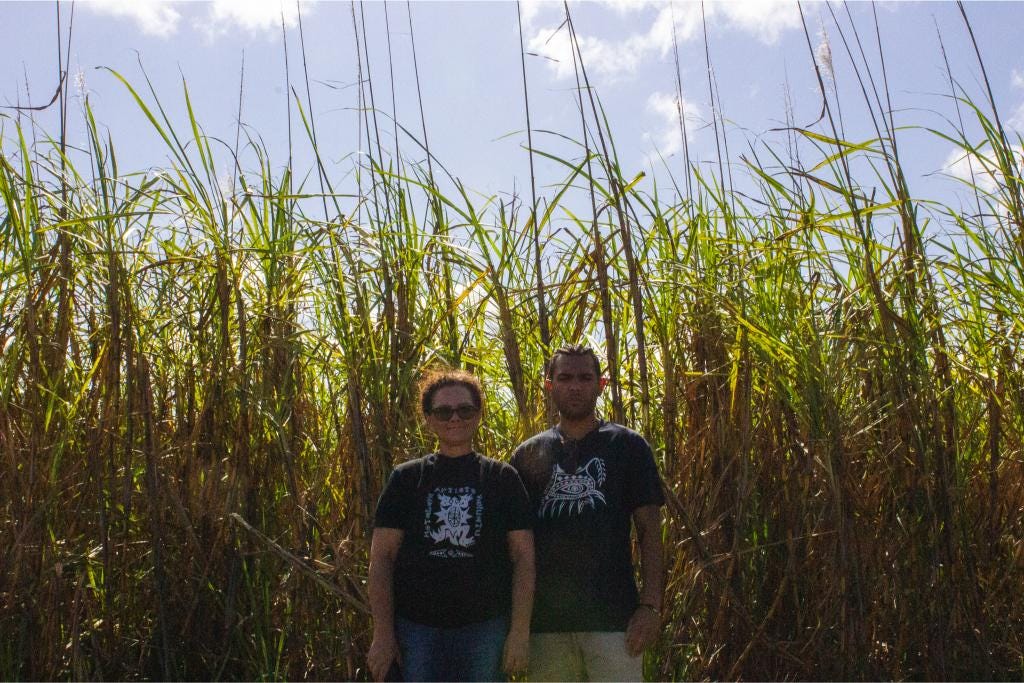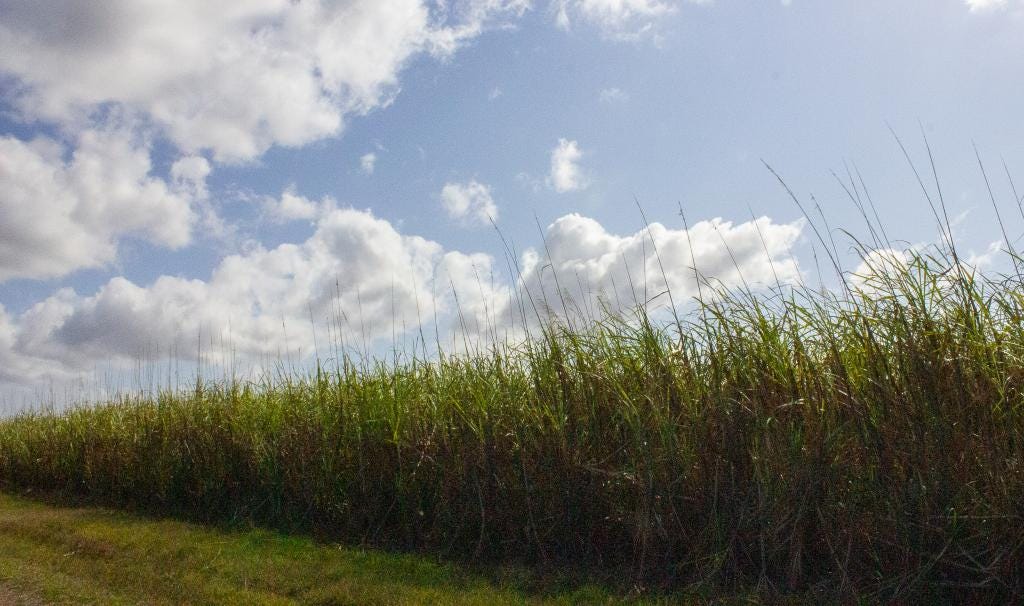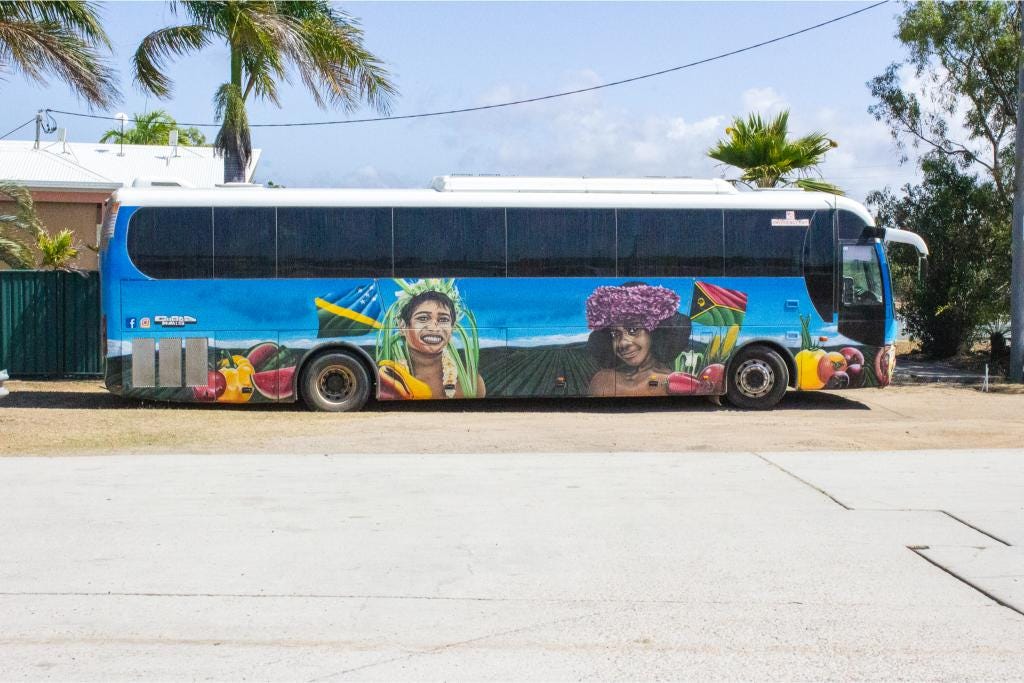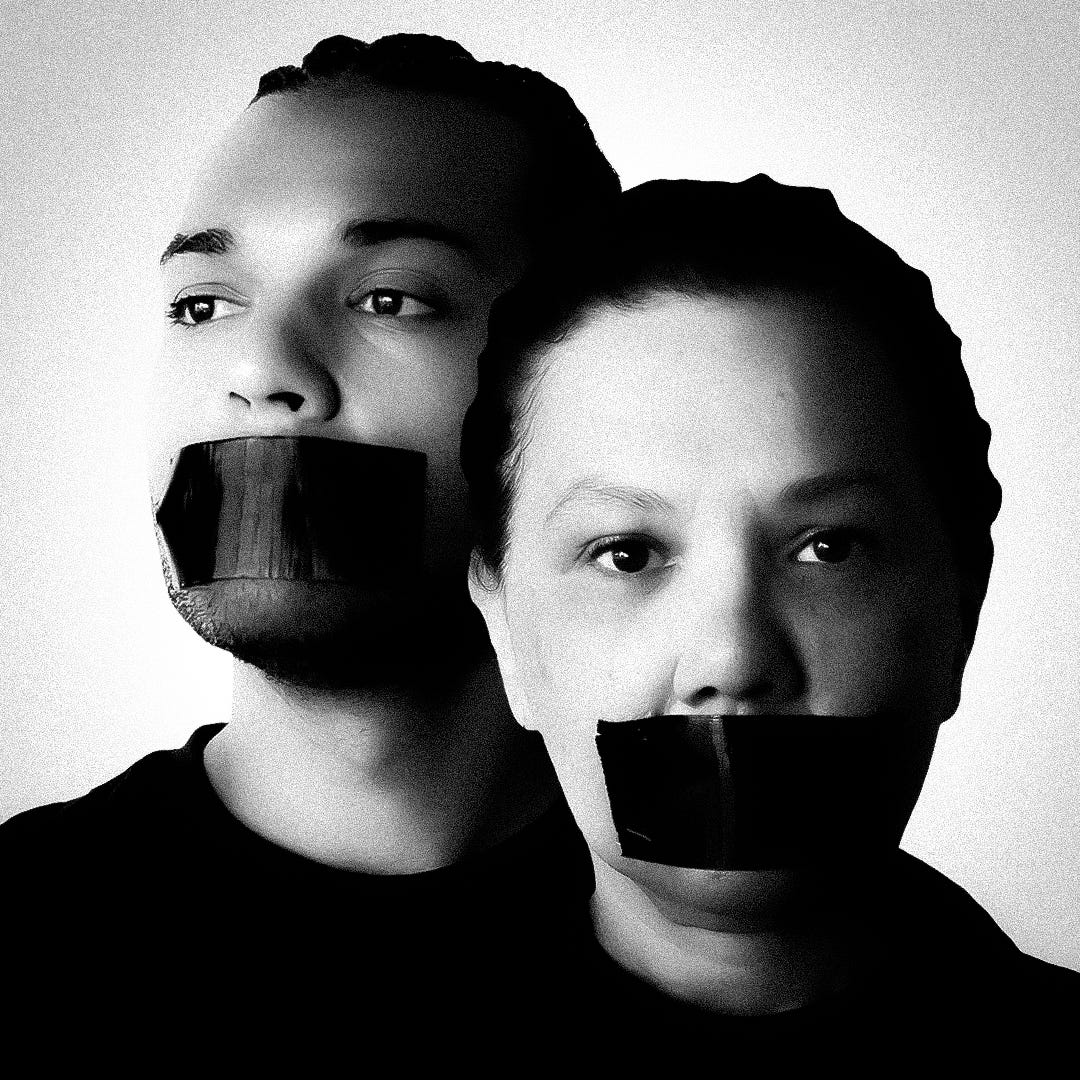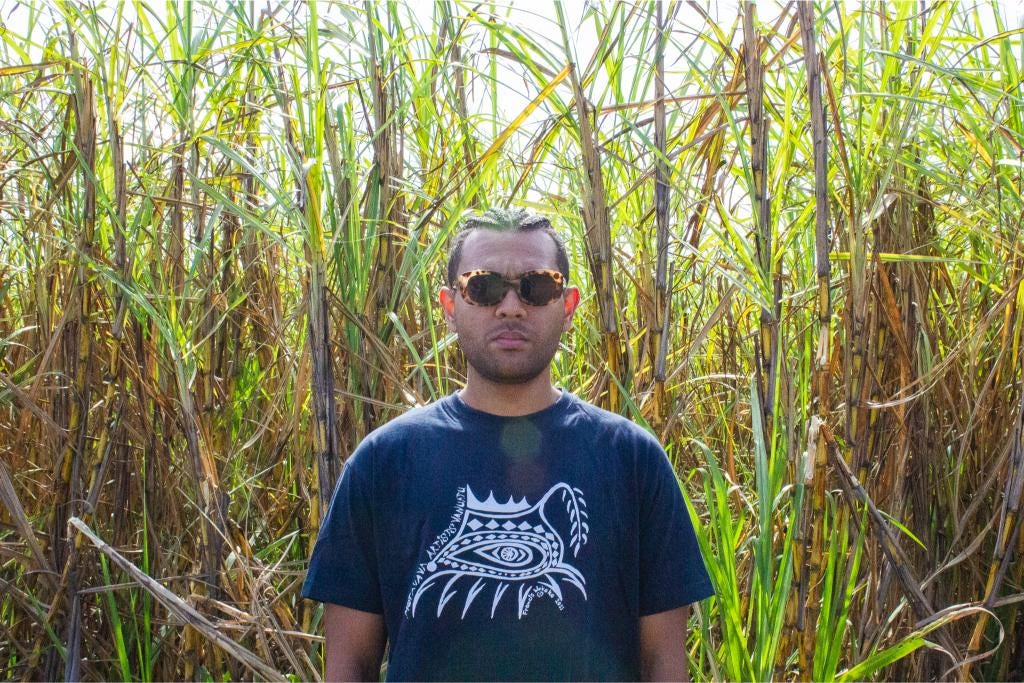No More Mr. Nice Guy
Zev and the War Cry of Blak Tape
When you grow up in Zevriel’s (Zev) household, you learn words like “kidnapped” and “slavery” before you learn the polite silences Australia prefers. His mother, Krishna, never wrapped their family’s story in cotton wool - it was laid bare on the kitchen table, in the car, at community meetings. “We never shied away from those kinds of conversations,” Zev says, almost casually. Sometimes, he admits, there’s even a chuckle when he tells these stories. “You have to smile through the suffering sometimes.”
That suffering runs deep. Zev is a direct descendant of South Sea Islanders forcibly taken from their homes in the Pacific, a brutal practice known as Black-Birding. More than 60,000 Pacific people were kidnapped or coerced into slave labour in Australia, working on sugar cane fields, cotton farms, and cattle stations. And yet, most Australians have never heard the word.
That silence is exactly what Blak Tape - the podcast Zev co-hosts with Krishna - aims to shatter. Released to mark the 30th anniversary of the Australian Government’s formal recognition of Australian South Sea Islanders, the six-part series blends investigative journalism with something fiercer: a war cry.
“Thirty years ago, when we were recognised, that was us playing nice,” Zev says. “But when three decades go by without much to show for it, that happens to piss people off.”
Blak Tape is an exposé of a buried history, it’s a demand for truth-telling, a refusal to let this legacy be erased. It’s also deeply personal. Working with his mum is a creative collaboration as much as it’s an extension of their lives together. “Looking back, it feels a lot like destiny,” Zev reflects. “I don’t think there’s anyone else you’d rather have holding your hand through such a harrowing history than hers.”
The pair’s approach is meticulous. Every episode is layered with immersive sound design, field recordings, and music - including beats from Zev’s brother, Remy - that draw on influences from Kanye West to Childish Gambino. This isn’t the standard “two mics and some chat” podcast; it’s an audio experience built to last. “We wanted something that still resonates decades from now,” Zev says. “Something timeless.”
A Life Shaped by Legacy
Zev’s path to Blak Tape runs through a childhood steeped in culture and activism. His mum grew up in Bowen, Queensland - nicknamed “Sleepy Hollow” - raised by her nana, the family’s anchor and treasurer for the local South Sea Islander community meetings. That same nana became a legend in Zev’s life despite passing before he was born, her influence filtering through the values Krishna instilled: community first, show up, stay connected.
He remembers being “dragged” to community events as a kid, days he didn’t love at the time but now sees as formative. At the end of primary school, his mother’s art practice took them to Vanuatu for a year, a trip he says “might have felt like I was going to die a couple of times” but ended up shaping him profoundly.
Art was always in the background - Krishna’s exhibitions, the influence of figures like Gordon Bennett and Basquiat, the texture of cultural memory woven into creative practice. Even now, their shared influences often come from outside the audio world, giving Blak Tape a visual, almost cinematic sensibility.
What Comes Next
Blak Tape is the debut project from their arts group, Kastom Kollektiv, and Zev is clear this is just the first chapter. Future plans include exhibitions and multi-platform works inspired by the podcast’s themes - projects that push South Sea Islander stories into spaces where they’ve never been seen or heard.
For Zev, it’s about more than art or even history - it’s about answering the questions that have haunted his community for generations: Where do I come from? Where do I belong? Who did this to me? Will justice ever be served?
He’s not waiting for someone else to provide the answers. “It was time to peel back the Blak Tape from our mouths,” he says. “To tell a story thousands of lives in the making.”
Listen to Blak Tape now wherever you get your podcasts.
Pitch to STAUNCH! 🚨
We’re on the lookout for bold, thought-provoking essays that challenge the status quo, spark meaningful conversations, and explore the complexities of Blak identity, sovereignty, and revolution.
STAUNCH. is a platform for First Nations writers and thinkers to share their ideas, push boundaries, and inspire action. We don’t shy away from the hard stuff—this is a space to stoke the fires of change.
What We’re Looking For:
🔍 Essays with clear arguments or big questions.
💥 Writing that is unapologetic, insightful, and deeply personal or rooted in community.
🌏 Topics exploring governance, culture, sovereignty, decolonisation, or the future of Blak self-determination.
📝 Pieces that provoke thought, inspire action, or challenge existing narratives.
What to Include in Your Pitch:
📄 A brief summary of your essay idea (2-3 sentences).
💡 Why this topic matters and how it aligns with STAUNCH.
🌟 A little about you—your background, voice, or anything you want us to know.
Send your pitches to travis@awesomeblack.org with “STAUNCH Pitch” as the subject line.
Let’s keep the fire burning with bold ideas and powerful writing. This is your chance to make your voice heard.
Before You Go: Help Us Empower First Nations Creators Through Our 2025 Grants Program
The Awesome Black Foundation is proud to launch our 2025 Grants and Scholarships Program, a pivotal initiative to amplify First Nations voices in literature and music. This program directly supports the creation of new, culturally significant works, preserving legacies for future generations while inspiring new ones.
Our Goal
We’re aiming to raise $80,000 through the Australian Cultural Fund to fully fund this program. These funds will provide:
Dedicated time and financial support for two talented First Nations creators.
Mentorship from Travis De Vries, Founder of Awesome Black, to refine and elevate their projects.
Publishing and distribution assistance to ensure their works reach audiences far and wide.
Why This Matters
First Nations voices have been historically underrepresented in Australia’s creative industries. Supporting these creators is about more than stories or songs—it’s about shaping cultural narratives, inspiring generations, and carving space for Indigenous excellence to thrive.
This program also incorporates a sustainable future: a 2% royalty stake in each recipient’s work will be reinvested to fund future grants.
Your Support, Their Impact
Your donation helps:
Empower creators to tell their stories.
Preserve cultural heritage through impactful art.
Enrich Australia’s cultural fabric with inclusivity and representation.
Inspire innovation within First Nations creative communities.
How to Donate
Every dollar counts. Support the Voices Rising Fund by donating through the Australian Cultural Fund. Together, we can fund profound works that will resonate for generations.
Visit us at AwesomeBlack.org to learn more and join the movement.
Let’s make 2025 the year we amplify First Nations voices like never before.


